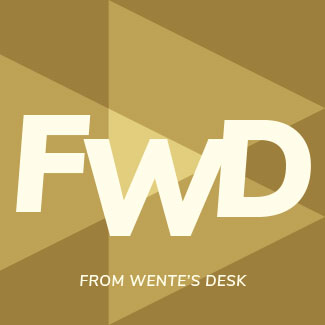A guide in moments of crisis: ‘For Humanity’

(Updated Oct. 16, 2023)
Whether in times of joy, trepidation, or sorrow, people – students, alumni, parents, community members, and others – look to trusted institutions like universities to demonstrate care, reason, ethical leadership, and a measure of stability when crises threaten to destabilize us.
At Wake Forest, I am proud that this solemn responsibility is also intricately linked to our motto. Pro Humanitate is a compass for us, to determine not only when to speak and to act, but how, and why.
It is of course more than words that matter. As a higher education institution, we also share the profound responsibility to provide a transformative education to our students in an environment where they can learn, belong, and thrive.
National and global events – in addition to crises on campus – can and do impact the experience our faculty, staff, and students have at Wake Forest. We are continuing to learn about how Hamas conducted the most horrific terrorist attack on Israeli soil in history, creating fear and uncertainty for Jewish people around the world as well as in our Wake Forest community. Scores of innocent civilians were injured, kidnapped, or killed. As the scope of the atrocity has become clearer, heartbreaking details are revealed of the nature of the attacks.
With Israel’s military response underway, we are all now witness to a new era of war unfolding and an escalating humanitarian crisis in the region with effects that will echo around the globe.
What should – or what can – a University do in moments of crisis as significant and horrific as these? The answer is complex. Here are some of the top priorities that guide me and our University leadership team as we navigate and respond to crises.
First, and always, take care of our people: Whether a crisis occurs on our own campus, in the region, or in the world, our first step will always be to account for the safety and wellbeing of our community. This is both a critical short-term priority, as well as an ongoing, guiding principle.
For example, this past weekend the University quickly worked to determine whether students, staff, or faculty were studying or traveling in the affected region; we next turned to engaging resources to mobilize care for students on campus who we anticipated would be most affected. Efforts then continued throughout the week to provide direct support via coordinated care within Campus Life and the Chaplain’s office.
Create opportunities for learning and dialogue: As a University, we are uniquely positioned to leverage academic research and expertise to analyze situations, to teach histories, and to create space for dialogue, debate, and discussion. We are fortunate to have world-class faculty and experts on complex issues across an incredible range of disciplines.
For example, following the Weaver Fertilizer Plant fire in Winston-Salem in 2022, Dean of Divinity Dr. Corey D. B. Walker saw an opportunity to advance research, scholarship and public engagement on environmental justice in our community. A $1 million Mellon grant now supports his work, which will generate new knowledge and be a catalyst for good in Winston-Salem and beyond.
Communicate our values: Crises in our community and on the other side of the world require thoughtful consideration of when to make a statement or send a message on behalf of the institution. The reach of today’s communication tools and the weight placed on the words of a university statement require an intentional approach to connect with a diverse audience that consumes and makes meaning of information in a variety of ways. I also want our actions to continually communicate our values, not just our words.
For example, following a tragic succession of mass shootings in educational settings, we organized space for reflection and fellowship in Wait Chapel. Such events are all too commonplace in the U.S., and simply acknowledging the events’ occurrence in only words felt less meaningful than communicating care by creating space for individual and community reflection. I also prioritize reaching out personally to leaders of affected institutions to offer empathy and support, as do many members of our University leadership team.
Empathy and support, our collective belief in the value of others, and empowerment through information — these tend to be the dominant themes in our crisis communication efforts, whether those efforts are person-to-person or broadcast across social media.
At Wake Forest, our response to crises should never be a single message or act. It involves overlapping layers of effort and continually evolves to meet the changing needs of our global community. Our community also evolves and finds further ways of responding to these moments of challenge. Rarely is a crisis response effort “finished;” instead, it becomes part of the fabric of how we continue to communicate care for one another as we create meaning of what has happened and consider what comes next.
The meaning of Pro Humanitate is never more evident than in moments of humanitarian crisis. Caring for people, creating opportunities for learning and dialogue, and communicating our values are ways we bring our motto to life.
Categories: From Wente's Desk
